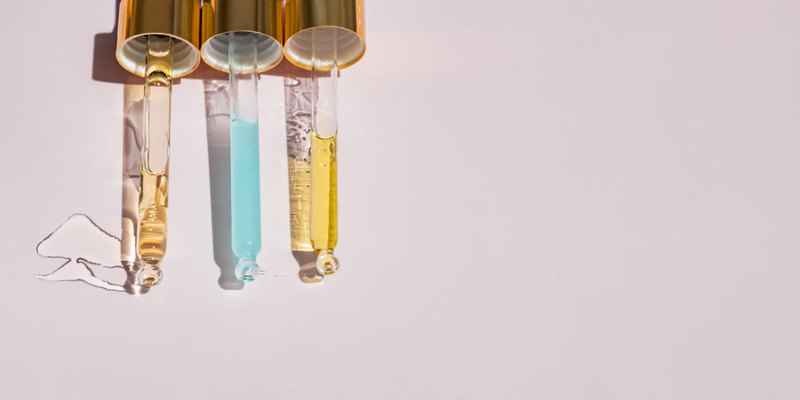Skin discoloration is something that almost everyone deals with at some point. Whether it’s dark spots, blotchy patches, or red flare-ups, these changes can make you feel self-conscious. In Canada, skin issues can be even more noticeable thanks to the unpredictable weather—freezing winters, dry indoor heat, and intense summer UV rays. This guide breaks down what causes discoloration, how to remove it, and what you can do to keep your skin looking its best.
What Causes Skin Discoloration?
Skin discoloration can pop up for all sorts of reasons. Sometimes it’s something harmless, like a little too much sun. Other times, it might be a sign of a more serious issue. Here are the main culprits:
- Hyperpigmentation: This happens when your skin produces extra melanin, leaving dark patches. Causes include sun damage, injuries, and hormonal changes.
- Rosacea: This condition shows up as persistent redness and bumps, often triggered by spicy foods, stress, or weather extremes.
- Eczema and Psoriasis: These chronic skin conditions can lead to red, flaky patches that sometimes leave behind discoloration.
- Hives: Allergic reactions or irritation can cause hives, which might leave red or dark marks after the swelling calms down.
- Skin Cancer: Sometimes discoloration can be a warning sign, like a mole that’s changing in shape or color. Don’t ignore these changes—get them checked out.
How to Get Rid of Skin Discoloration
Depending on what’s causing the discoloration, treatments can range from DIY fixes to dermatologist-approved procedures. Here’s the breakdown:
- Topical Treatments:
- Vitamin C Serums: These brighten skin and tackle hyperpigmentation.
- Retinoids: Great for speeding up skin cell turnover and fading dark spots.
- Hydroquinone Creams: A go-to for lightening stubborn spots, but it’s strong, so use it with care.
- Professional Treatments:
- Chemical Peels: A quick way to remove dull layers and reveal fresher skin underneath.
- Laser Therapy: Targets dark spots or redness with precision.
- Microdermabrasion: Gently exfoliates and evens out skin tone.
- Lifestyle Changes:
- Sun Protection: Use sunscreen every single day. Even when it’s cloudy or snowy, those UV rays don’t quit.
- Healthy Eating: Fill your plate with antioxidants—think berries, spinach, and nuts. They’re like skin food.
- Stay Hydrated: Keeping your skin moisturized from the inside out makes a world of difference.

Home Remedies for Discoloration on Skin
If your discoloration isn’t too serious, you can try some easy fixes at home:
- Aloe Vera Gel: It’s soothing and helps heal your skin.
- Green Tea Bags: Put cooled tea bags on your skin to calm redness and brighten your complexion.
Prevention Tips for Healthy Skin in Canada
The Canadian climate can be rough on your skin, but a little planning goes a long way:
- Moisturize Daily: Keep your skin hydrated, especially during cold, dry winters.
- Cover Up: Hats, sunglasses, and scarves aren’t just fashion statements—they’re your skin’s best friends.
- Know Your Triggers: If you’ve got rosacea or eczema, avoid things like hot showers, spicy foods, or alcohol that can make it worse.
- Hydrate and Eat Smart: Drink plenty of water and load up on skin-friendly foods like avocados and salmon.
- Sunscreen is a Must: Seriously, every day. Yes, even in winter.
When to See a Doctor?
Some discoloration is no big deal, but other times, it’s worth getting checked out. Call a dermatologist if:
- A mole or patch changes shape, size, or color—this could be a red flag for skin cancer.
- Discoloration comes with pain, swelling, or itching.
- You’ve tried over-the-counter treatments for months with no luck.
- A new patch of discoloration pops up, and you can’t figure out why.
Final Thoughts
Skin discoloration can be a pain, but don’t let it get you down. With the right routine, most issues can be managed or even reversed. Whether you’re keeping it simple with sunscreen and hydration or going for professional treatments, there’s always a way forward. And if you’re in Canada, remember to protect your skin from those harsh winters and sunny summers.
If nothing seems to work, don’t sweat it—reach out to a dermatologist. They can help you figure out what’s really going on and get you on the right track to clear, healthy skin.
FAQs
Can makeup cause skin discoloration?
Yes, some makeup products can clog pores or irritate your skin, leading to dark spots or redness. Always choose non-comedogenic options.
Is discoloration permanent?
Not usually. Most discoloration fades with time, the right treatments, or professional care. However, some cases may take longer to improve.
Can hormonal changes affect skin color?
Absolutely. Things like pregnancy, birth control, or menopause can cause melasma, a type of discoloration linked to hormones.
Do skincare products work in extreme colds?
Yes, but winter skincare needs to focus on heavy-duty hydration. Use thicker creams and layer up with serums for extra protection.
